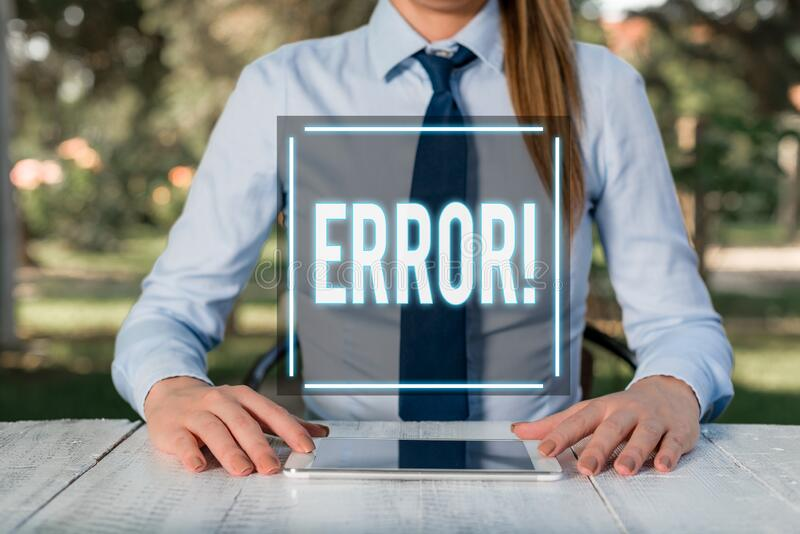Being Wrong
“To live a creative life we must first lose the fear of being wrong.” ― Joseph Chilton Pearce

Mistakes, we all make them.
My old boss, Bill Clymer, once said, “We all make mistakes. That is why they put erasers on the ends of pencils”. We all remember what pencils are, right?
Unfortunately there are many people who either won’t admit to making a mistake or are terrified that they have or may do so. Either way, that is not a good thing. We probably cannot count how many mistakes we make daily, no less throughout our lives. We are imperfect beings and it just goes with the territory.
For those who claim to have never made a mistake, they are delusional.
They do not own up to their own culpability and blame everyone else for anything that goes wrong. Chances are good that they are the biggest mistake makers of all. It is said that anyone who has never made a mistake probably has done nothing.
What may be worse are those who are afraid, maybe even terrified of making a mistake. They think that by not making a decision or taking an action they are safe from any consequences. But, in not doing anything, they are in reality taking an action and ultimately will bear the results for such.
“To make mistakes or be wrong is human. To admit those mistakes shows you have the ability to learn, and are growing wiser.”
Donald L. Hicks, Look into the stillness

To worry over making a mistake or being wrong about something is correctable.
We can and should learn from our errors so that we do not repeat them. We also clean them up and in doing so, may make things better.
We all have our fears to deal with. These may include a fear of spiders, insects, dogs, or my own personal fear, heights. There are coping mechanisms to deal with these, just as there are for the fear of being wrong.
In the article, “How to Overcome Your Fear of Making Mistakes” by Alice Boyes in the June 2020 edition of the Harvard Business Review, the following approaches are covered:
- Don’t be afraid or ashamed of your fear.
You should never be afraid of being wrong or making a mistake, It is only human and everyone does it. Even the smartest person makes repeated mistakes. They learn from this and move on. You should too.
- Use emotional agility skills.
Emotional agility skills are an antidote to living in fear. This process starts with labeling your thoughts and feelings. Stating your fears out loud helps to diffuse them.
Repeating this process for each of your fears. will help you tolerate the fact that you sometimes need to act when the best course of action isn’t clear. This helps to overcome and avoid trying to reduce your uncertainty to zero.
- Focus on your processes.
We can control systems, not outcomes. We need to define our systems and processes for avoiding making mistakes. We need to having our processes alerted to a problem quickly and rectifying it as quickly as possible.
- Broaden your thinking.
When we’re scared of making a mistake, our thinking can narrow around that particular scenario. Imagine the person who is scared of flying. They drive everywhere, even though driving is objectively more dangerous. When you open up your thoughts, it can help you to see your greatest fears in the broader context of all the other threats out there. You can get a better perspective on what you fear the most.
- Recognize the value of leisure.
Fear makes it difficult to direct our attention elsewhere. This is how it is, so that we don’t ignore threats. Some people react to fear with extreme hypervigilance. This might manifest in behavior like staying up all night to work or worrying.
By getting involved in other activities, we may be able to direct our thoughts in another direction. This allows us to put our fears on the back burner and focus on what we are doing.
- Detach from judgment-clouding noise.
When people are fearful they can go into an always-on monitoring mode. This may cause us to have the urge to constantly look at what everyone else is doing or to always be on social media resulting in information overload. By recognizing that we are doing this we can limit over-monitoring or over checking.
“Allow yourself to go and do it wrong. Don’t expect to always get it right. It will prevent you from doing anything.” Darren Hardy – The Compound Effect

So, where do you go from here?
First of all try dealing with your fears using one or more of the techniques described above. As a reminder, these are:
- Don’t be afraid or ashamed of your fear.
- Use emotional agility skills.
- Focus on your processes.
- Broaden your thinking.
- Recognize the value of leisure.
- Detach from judgment-clouding noise.
Then, keep working at it. Fears don’t magically go away. Like most things in life, they need attention and work or they will come back slowly or in a rush. That means you need to regularly address them and keep them at bay.
You may still have pangs of worry about being wrong. If you have a conscience, that is a good thing because no one wants to be wrong. But that should not stop you from living your life, error prone as it may be. Just clean up any messes and move on And most of all do not let this be something that Keeps You Awake at Night.
I really like and appreciate your post.Really thank you! Really Cool.